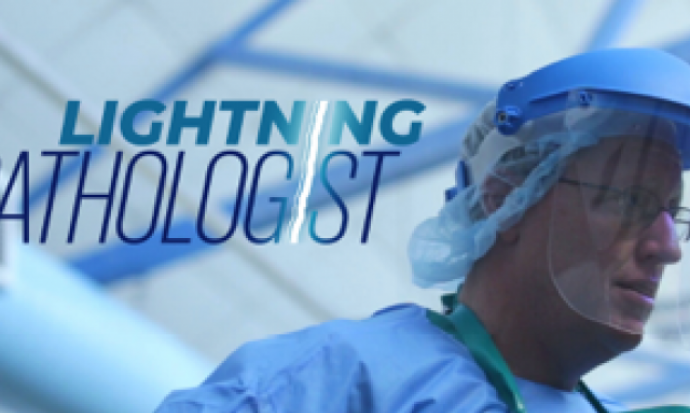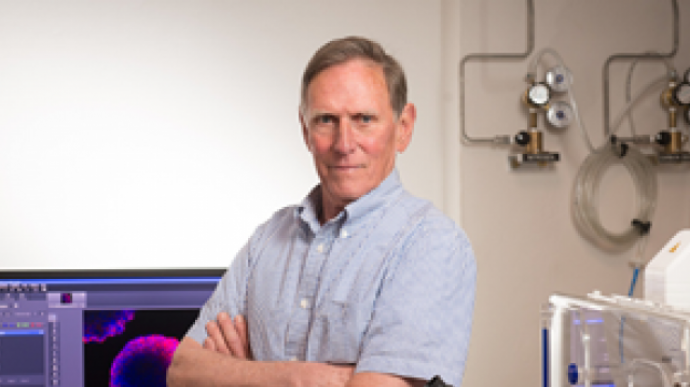University of Pretoria (UP) forensic pathologist Professor Ryan Blumenthal is a senior specialist and lecturer in the Department of Forensic Medicine and an expert on electrothermal injuries. Many might recognise him from the eight-part documentary series Lightning Pathologist, which recently aired on DStv.
He has published widely in the fields of electrocution, suicide and other areas involving trauma pathology. Prof Blumenthal has also contributed four chapters in textbooks on lightning and electrocution, and holds a C2 rating with the National Research Foundation.
After graduating with an MBChB degree in 1998, Prof Blumenthal specialised in forensic medicine and pathology, and was awarded his PhD in 2015. His research articles have been cited in peer-reviewed or refereed journals.
Apart from lecturing and mentoring students, he also advises detectives and clinicians, and has given evidence as a medico-legal consultant in several court cases.
He tells us more about the nature of his work and why lightning fascinates him:
Why did you become a forensic pathologist and what does the work entail?
Forensic pathologists document atrocities and offer closure to the victim’s next of kin. The critical evidence we collect is used to bring perpetrators to justice. We also help to exonerate the innocent and put criminals behind bars.
A forensic pathologist, also known as a medical examiner, is a qualified medical doctor, equipped mentally, physically, emotionally and psychologically to examine the dead. We look for clues on the body, which is considered the “crime scene”.
To become a forensic pathologist in South Africa, you need a medical degree MBChB – which takes about seven years of study – then you need to do about four years of community service. Finally, you can specialise, which takes another four years. My PhD took me eight years. So altogether, I have been studying for about 23 years.
It is interesting to note that there are between 60 000 to 80 000 unnatural deaths in South Africa every year, which requires a full autopsy, and there are only about 54 forensic pathologists in South Africa at the time of writing.
You developed a keen interest in lightning – why is that?
There are so many worthy “causes” worth lobbying for: HIV/AIDS, maternal deaths, unexplained paediatric deaths, crime and corruption to name just a few. The lobbyists with the loudest voices seem to get all the attention – and all the funding. To me, this is not fair and this is not just. Lightning is my cause; I speak for those injured and struck by lightning. We are all at risk outdoors in a thunderstorm, no matter who you are.
How many people are killed by lightning each year in SA?
There are between 80 and 100 lightning-related deaths annually in South Africa, and it is probable that there are at least four or five times as many survivors of lightning strikes presenting for clinical treatment. There is virtually no published data in SA on lightning morbidity; data such as the number of lightning strike survivors, the nature of their symptoms and injuries, and so on.
Is South Africa considered a hot spot for lightning strikes and deaths?
South Africa has one of the highest lightning death rates in the world and there are many reasons for this. It is a lightning-prone country, with a relatively high lightning “ground flash density”, especially over the Highveld and the escarpment. Also, there is widespread exposure to lightning – people walking home from work or school in rural areas. Many people are outdoors during the daytime when thunderstorms are most frequent. In addition, the lack of lightning-safe homes and shelters means that South Africans are vulnerable to lightning at all times.
Tell us about the response to the DStv series about lightning that you were involved in.
Lightning Pathologist aired on the People’sWeather channel in November 2020 and was very well received. According to the Nielsen ratings, the documentary was viewed by about 2.2 million people.
The feedback from all sectors of society has been somewhat overwhelming. I have received fan mail from all over South Africa as well as requests from parents who are worried about the lightning safety protocols at their children’s schools. Several lightning strike survivors have also contacted me; I have received requests from science expos and outdoor magazines; and other TV channels have asked about a second season for Lightning Pathologist. The most unusual mail has been from a prisoner, who has been sending me friendship requests in his prison gear with his handcuffs on.
You published a book last year – tell us about that.
I wrote a book called Autopsy: Life in the Trenches with a Forensic Pathologist in Africa [Jonathan Ball, August 2020], which was a bestseller in SA and was launched internationally through Icon Books in the UK in February this year. It is a tell-all in which I talk what I most/least enjoy about my work.
How has the COVID-19 pandemic influenced your thoughts on the importance of science?
As an essential worker, I have worked the entire time and have lost friends, family and colleagues to this virus. It has been tragic! The world has changed and it feels like we are living in dystopian times. The importance of science has come to the fore during the pandemic. One of the questions that seems to have emerged as a result of it is: “Who are these ‘experts’ and can we trust them?” Only by understanding science, real science (as opposed to pseudoscience and fringe science) can the real truth be discovered.
What do you do when you’re not working?
I try to lead a balanced life. My hobbies include novel writing, chess, bird-watching, mountain biking, walking, puzzle-solving and trying to make the world a better place.

 Story
Story
 Infographic
Infographic
Get Social With Us
Download the UP Mobile App